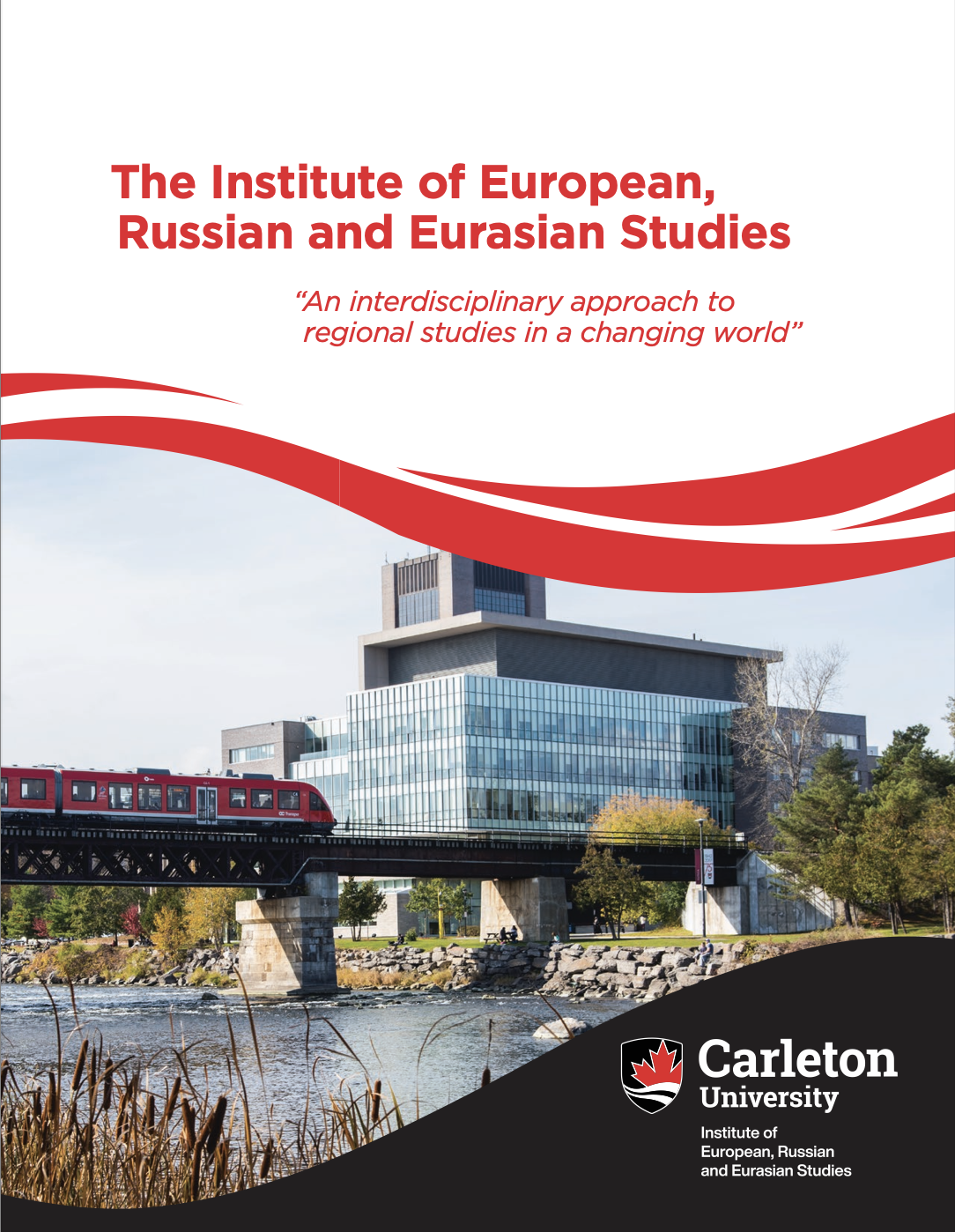MA in European, Russian and Eurasian Studies

The Master of Arts (MA) in European, Russian and Eurasian Studies offers students an unparalleled opportunity to do research with experts on Europe and European integration, Central and Southeast Europe, Russia, the Caucasus and Central Asia. Renowned for its expertise in this field, EURUS houses various research initiatives, including the Jean Monnet European Union Centre of Excellence and the Kinross Fund for Russian Studies.
EURUS courses provide an interdisciplinary perspective on the region. Seminars are delivered by award-winning faculty members and renowned visiting professors from the European Union and Russia. Students also have access to courses and faculty expertise provided by cooperating departments including the Departments of Political Science, History, and the Norman Paterson School of International Affairs.
All MA students select a concentration (Russian and Eurasian OR European and European Union Studies) on entry into the program and together complete a two-part core seminar (EURR 5001 and EURR 5010). Every EURUS student receives funding on entry into the program through a scholarship or research/teaching assistantship. Students have access to several courses offered by EURUS as well as those in other units. Outlines of currently offered courses can be found here. As they complete courses, EURUS MA students have opportunities to participate in internship and co-op programs at embassies, consulting firms, NGO’s and the federal government. As their capstone, students then select the option of a research essay (EURR 5909, 1.0 credit) or a thesis (EURR 5908, 2.0 credits). For more details, consult the graduate calendar here.
Dual Master in European Studies
Interested in studying Europe both at Carleton University and at the very heart of the European Union? The Dual Master in European Studies may be the right program for you. The Dual Master is jointly offered by EURUS and by the Interfaculties School in European Studies at Université Catholique de Louvain (UCL), in cooperation with Universite Saint-Louis Bruxelles (USL-B).
The Dual Master is a 6.0 credit program. Carleton students must first be admitted to the MA in European, Russian and Eurasian Studies and can then apply to be considered for the Dual Master pathway.
EURUS MA Requirements
Language Requirement
By the end of your degree, you will be required to demonstrate proficiency in an approved regional language linked to your research interests. The most popular options are Russian, German, Spanish, French and Italian. Other students have utilized Swedish, Dutch, Polish and Ukrainian, among others. EURUS offers funding for students to undertake language training abroad.
Exchange Opportunities
EURUS is pleased to offer exchange opportunities across Europe, Russia and Eurasia and the chance to complete the EU Study Tour. For stories from past and present students, please view our Student Experience Abroad page. Other exchanges are also provided through Carleton’s International Student Services Office.
Career Opportunities
EURUS prepares regional specialists who possess a variety of language, analytical, and writing skills to enter the job market or advanced degree programs (including PhD programs and law school) with a competitive advantage. An internship and job readiness program prepares our students for an effective transition to the working world. Following the first year of study, EURUS offers its students the opportunity to bridge into the world of employment through their degree through Carleton’s Co-op program. Through the co-op program, our students have worked in Global Affairs Canada, SecDev Foundation, Treasury Board Secretariat, and a number of other governmental and non-governmental agencies. Through its close connections with public and private organizations as well as universities that deal with the region, the Institute is often able to assist its graduates in finding appropriate employment or further research and study opportunities.
Our graduates have been successful in finding employment in their fields of study, with job opportunities in Canada, the U.S., Europe, Russia and Eurasia. Recent EURUS graduates have found employment in:
- Global Affairs Canada
- Foreign Embassies
- Crown-Indigenous Relations and Northern Affairs Canada (CIRNAC)
- Department of National Defense (DND)
- Canada Border Services Agency (CBSA)
- Immigration and Refugee Board (IRB)
- International Development Research Centre (IDRC)
- Canadian Bureau for International Education (CBIE)
- Private Business (Risk Analysis, Cybersecurity)
- Journalism
- Grassroots and International NGOs
- United Nations Human Rights Commission (UNHCR)
- The World Bank
- International Organization for Migration (IOM)
- Internal Displacement Monitoring Centre (IDMC)
- European Bank for Reconstruction and Development
- Cowater International
- Red Cross
- SecDev Foundation
Many EURUS students also continue on to doctoral programs in political science, history, economics, and other disciplines. EURUS graduates have received funding to study worldwide, including Columbia University, the University of Illinois, Michigan State University, and the Central European University. Some EURUS graduates combine their regional specialization with other degrees such as an MBA or LLB, in order to create a more specialized niche for themselves in the labour market.
Publication Opportunities
Students also have the opportunity to publish in the Canadian Journal of European and Russian Studies (CJERS), an online academic journal that promotes research articles and literature reviews related to the European Union or former Soviet Union states. CJERS is housed in the Centre of European Studies at Carleton, a EURUS-associated research unit.
You can learn more about CJERS here.
Scholarship and Financial Aid
Students in the EURUS MA program receive significant financial assistance in the form of teaching and/or research assistantships and scholarships. For more information go to the Scholarships and Financial Aid page.
More Information and How to Apply

You can find more information on the following topics at the links below and find formal regulations for the program in the Graduate Calendar.
- How to Apply
- Deadline for Application (scroll down to European, Russian, and Eurasian Studies)
- Frequently Asked Questions (FAQs)
- Research Paper and Thesis FAQs
- Admission Requirements